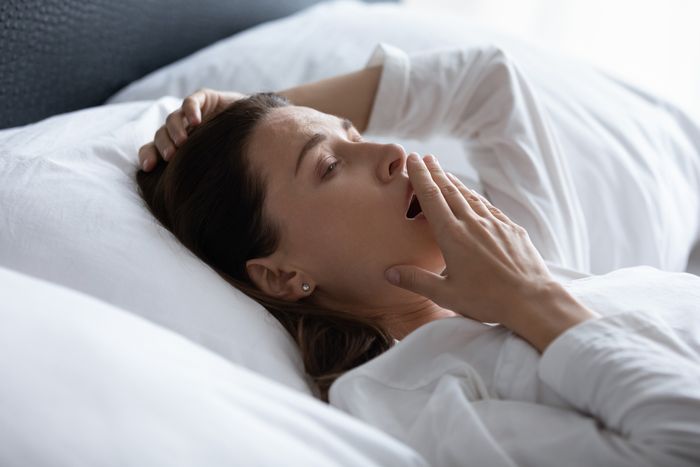Sleepless Nights: Can You Function on 3 Hours of Sleep a Night?
Published May 9, 2023.

A good night's sleep is essential for both physical and mental health (1). In fact, chronic sleep deprivation can cause a host of health issues, including diabetes, heart disease, kidney disease, anxiety, and depression (2).
Unfortunately, many people don't get restful sleep as a result of various problems like dealing with anxiety disorder, sleep disorders, and depression. On the other hand, some people have sleep difficulties caused by alcohol or substance abuse, while others experience sleepless nights due to mental illnesses like bipolar disorder.
» Find your personalised wellness routine
What Happens When We Don't Get Enough Sleep?
We sleep in cycles each night, and each stage of sleep is important to our overall sleep quality and health (3). For a good night's sleep in adults, four to five sleep cycles need to be completed, with each stage taking about 90 minutes. There are four sleep stages (five if you include wakefulness):
- Wakefulness
- Non-REM 1 (light sleep)
- Non-REM 2 (deeper sleep)
- Non-REM 3 (deep sleep or delta wave sleep)
- REM sleep (rapid eye movement sleep)
Experts recommend that adults have a minimum of 7 hours of sleep each night (4). Getting less sleep than you require on a regular basis can lead to chronic sleep deprivation, which can have many negative effects. These include the increased risk of diabetes, kidney disease, heart conditions, stroke, depression, irritation, and anxiety disorders.
» Want to ensure restful sleep? Here's how to improve your deep sleep
Is 3 Hours of Sleep Enough?
The short answer is—no, it's not enough on a regular basis. However, whether three hours of sleep a night is enough will depend on the person, as not everyone reacts the same to lack of sleep—some people may even feel more rested and productive when they sleep less. That being said, although they seem able to function on three hours sleep per night, this doesn't mean their health isn't negatively impacted.
Generally, getting only three hours of sleep a night won't seriously affect you if you only do it on isolated occasions—what's more, it's better than getting no sleep at all. Nevertheless, this isn't a sustainable practice in the long run, and it can have serious consequences on your overall health if you get into the habit of doing so often.
» The dangers of sleep deprivation: learn about sleep deprivation headaches and nausea
How to Cope With Sleepless Nights
You may be able to manage three hours of sleep for one or two nights, but you should consider possible solutions if this lack of sleep persists. Finding out what's causing your sleep problems and taking the necessary steps to address them can help you prevent sleep deprivation and improve your sleep quality.
While coping with sleepless nights can require different tactics depending on the underlying issue, these are some general strategies you can try:
- Make sure to have a regular sleep schedule (go to sleep and wake up at the same time)
- Create a sleep-friendly environment in your bedroom (adjust the lights, temperature, and bedding)
- Use sleep aids
- Try relaxation techniques
- Practice mindfulness and meditation
» Try these meditation techniques to increase deep sleep
Make Sure to Get a Good Night's Rest
Three hours of sleep for one or two nights won't necessarily cause health issues, but it can wreak havoc on your health and sleep routine and sabotage your sleep quality in the long-term.
Getting at least 7 hours of sleep per night as recommended by experts will not only reduce the risk of serious sleep-related health issues but also enhance your mood and increase productivity. If you're unable to stick to the recommended amount of sleep, make sure to consult a professional and get to the bottom of what's causing your sleep issues to reap the benefits of staying well-rested.








